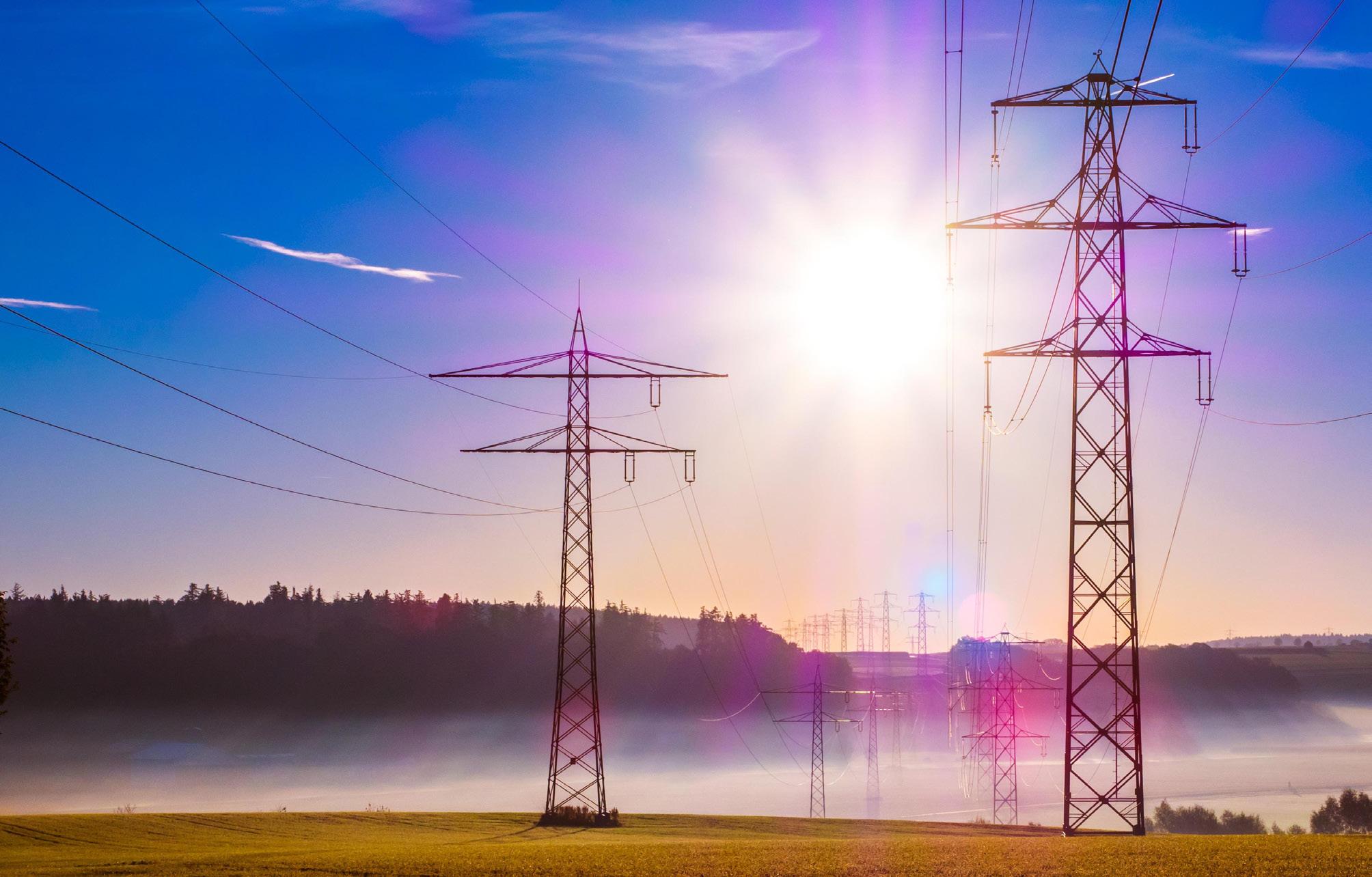
9 minute read
SECURITY OF ENERGY SUPPLY – FOR THE GREATER GOOD OF BRITAIN
For the Greater Good of Britain
Sean Prior, Energy Manager at Alfa Energy
Advertisement
I strongly believe that the U.K. should utilise the natural resources at our disposal to fund the transition to low and zero carbon technology and achieve energy security. That resource is of course shale gas and oil as well as nuclear energy and a host of technologies bundled together under the renewables or green branding. Shale gas is a critical element. It can have a short-term impact. Keeping lights on and people warm. Plus, it can provide the investment pot for nuclear and alternative energy solutions. Secondly, and most importantly, that resource should be exploited by a U.K. sovereign wealth fund (SWF). The reason for this is simple. The whole country should benefit from, and indeed the whole of humanity hugely benefits from, cheap abundant fuel and heat. There are undoubted health benefits from living in well heated homes that are damp free. In addition, there are undoubted benefits from the wealth that industrialisation has brought humankind. There are down sides but the benefit of the ability to learn is that we can do things better. For me, energy management has always been about doing things better. The comparison between Norway that has a sovereign wealth fund to manage the exploitation of oil wealth and the U.K., which does not, is stark. There are of course huge differences between the two countries. However, the U.K. sold much of the oil when prices were low, the tax yield was still lower. Oil companies were the principal beneficiaries. Norway did not. The level of taxation on the commodity should be set to guarantee borrowing repayments. Like a war bond that pays investors a guaranteed dividend for 100 years. The SWF would invest in a range of U.K. owned and manufactured technologies that make the U.K. energy secure, produce cheap emission free power and heat for U.K. businesses and homes. The funding would support centralised, de-centralised energy production as well as insulation and demand management programmes. Over time, all U.K. generation would come under the SWF or it could be a funder and beneficiary of power purchase agreements. The SWF would be open to all investors and should be focused on small private U.K. investors who can buy shares and hold stock paying a dividend for up to 100 years. Individual private or corporate shareholdings would need to be restricted to a maximum, so no one individual or group hold too much influence or corrupt intent over the SWF policy and outcomes. The fuel and electricity should not be exported, unless U.K. demand is met and the base price of fuel or electricity has not exceeded a cap. Onshore fuel and generations assets should be exploited by U.K. onshore industry, commerce and domestically for the benefit of all. This is unabashed. I do not approve of or want to see the impoverishment of the British people due to the abject failure of heavily regulated energy markets and environmental policy. My premise is that the U.K.’s energy policy and environmental policy have failed. The U.K. has lost its energy security and the public is paying the price. We have a legacy of high taxes on energy. We export manufacturing and fiddle statistics to achieve carbon reduction and now net zero on paper. The U.K. imports high emission LNG to the detriment of the exchequer and the environment rather than use the U.K.’s resources. Solar panels and wind farms are built with public subsidy, but their environmental impact is high. The energy generated does not negate their environmental impact and energy used in the production, and little or no thought is given to the decommissioning or recycling of these technologies.
The cash a SWF would generate should be invested in renewable technology made by U.K. headquartered and on shored technology and manufacturing companies. Again, this is unabashed. If a company benefits, and why should they not, pay a little tax in the U.K. Secondly, the U.K. needs a level of skilled technologically advanced manufacturing to be resilient, viable and to provide a solid base for economic growth.
Companies need to pro-actively consider technology like evaporative cooling, air and water source heating, thermodynamic solar arrays, natural lighting and provide evidence for ruling out their use before considering more energy intensive solutions.
Small Modular Reactor (SMR) nuclear technology is necessary. We have to get over our fear of the Windscale era cold war nuclear technology. There is a core nuclear industry in the U.K. However, the U.K. needs a cheap reliable source of energy. SMR’s can be rolled out in the shorter term and rely on passive safety system that will alleviate problems seen in the past. The industry is developing reactors that are fuelled on existing nuclear
waste. The technology cannot simply be dismissed. It has to be a part of the national plan. The technology is zero emission at point of use. It can be zero emission to build, install and decommission as well but we will need to put the effort in. A variety of scaled nuclear projects will go some way to alleviating the problem of balancing the grid with wind and solar assets’ intermittent energy production. There will be a need to prevent undue subsidy of wind or solar. If those are not feasible nuclear is the choice. If wave is reliable and cost effective a mix of wave and nuclear should be considered.
Planning and nimbyism must be overruled. If we do not, we run the risk of log jamming nuclear technology, for example, in the planning process until 2050. That is not to say that we only look at nuclear technology. Offshore wind must be costed and considered as should wave technology. If a technology consumes more energy and emits more emissions over their productive life cycle than they generate in heat and power, they must be ruled out. This can be reviewed periodically and as the market drives technological advances a technology should be reassessed. The same goes for the schemes like the river Severn Barrage, stalled tidal project. This needs to be reviewed and work begun if it passes the test. This would take a national plan, national legislation. Everyone would benefit from the Sovereign Wealth Fund. The gas and power generated can still be marketed and sold using the existing model. Competition can drive down retail price. The SWF could pay for, at a basic level, insulation for all homes; not just the homes of special interest groups like the over 80s or unemployed. However, it would be important that the SWF is an independent body, subject to House of Commons scrutiny and established by parliamentary legislation, but free from direct political control and no subject to the Party mire. The national plan could simply state:
Goal by 2030,
• Extract shale gas & oil.
• Build SMR power station by 20252030.
• Construct Hydrogen infrastructure by 2025-2030.
• Tender process for U.K. companies manufacturing renewable heat and power solutions and low-cost insulation by 2023-2025.
• Phase I installs of low / zero emission heating in all new builds.
• Training of the workforce in the use of refrigerants and installing renewables must be encouraged.
Apprenticeships open to all ages, including manufacturing apprenticeships where the SWF would be used to set wages at average U.K. earnings during training, partly through NI and tax exemptions whilst training for employers and staff.


Phase II 2030 - 2050
• Roll out of replacement of domestic heating systems with renewable heating technology.
Natural replacement cycle as gas boilers fail and renewable technologies are used to replace them. Tendering process to benchmark technologies at natural gas boiler and existing
HVAC technologies. • Measures must include insulation, practical measures for replacing natural gas boilers over time.
Thermodynamic solar arrays, a heat pump solar thermal hybrid can do this across the
U.K. Older homes may need low temperature or additional radiators. The installation costs are lower. They will produce low temperature hot water even on the coldest U.K. day and they do not need to be installed on roofs which would reduce the installation costs.
• The national plan must reimagine transport. Crucially, not by taking a stick to everyone enjoying the freedom of a drive in the family car. Rather by building the infrastructure to replace traditional internal combustion engines (ICE) with hydrogen fuel cells and ICE engines as well as electric battery engines. The U.K. can have a green hydrogen produced by electrolysis using nuclear fuel, wind, and wave technology. The cars can be manufactured at existing U.K. based plants working with existing companies if they use U.K. registered companies to pay a share of tax. For fans of mass transit, hydrogen trains and buses already exist, and a heat pump fireless steam engine has already been designed.
• The construction of decentralised
SMR nuclear reactors would facilitate the decentralisation for the grid and negate the need for the wholesale replacement of the national grid at vast expense.
• The adoption of SMR technology and Hydrogen gas generation will mean that furnaces, steel working, the chemical industry, aluminium smelting, and manufacturing would be viable.
U.K. companies should be protected from dirty imports. A focused sales taxes, assuming VAT is scrapped, or import duties would need to be applied to manufactured goods that cannot prove the provenance of their renewable power and heat, and the provenance of their recycled raw materials and plastics. A sales tax on goods could be applied on a sliding scale. For example, goods manufactured in a sweatshop with wages at subsistence levels and poor or dangerous working conditions, which utilises fuel and power that emits more than the U.K. average would pay the highest rate of sales tax or import duties. My last point is that every paragraph can be robustly contested, objected to, equally supported, and trumpeted. The point is, as free Britons in a free society we must debate openly and freely. There must be no room for threats, cancelations and twitter hate storms. I am strongly of the view that constant ‘stick’ and high taxation is not the way to achieve the migration to environmentally friendly fuel and power. The above is a practicable route to achieving readily available cheap energy and heat that will allow the economy and people to thrive in the U.K and around the world. This model is not perfect, but we can get it done.
Author’s Profile:
Sean has worked in the energy demand management industry for nearly twenty years, and is currently a ESOS lead assessor for consultancies such as Alfa Energy.






